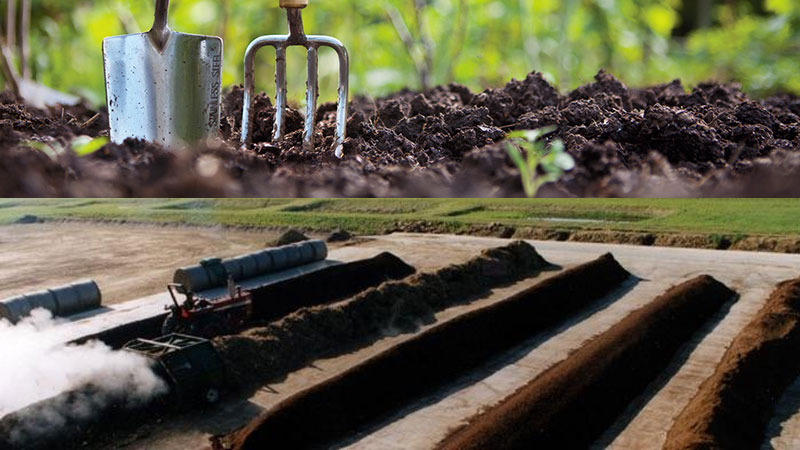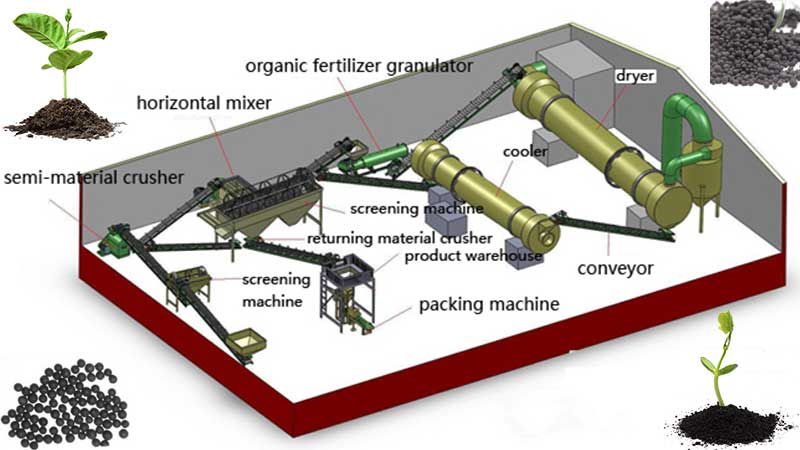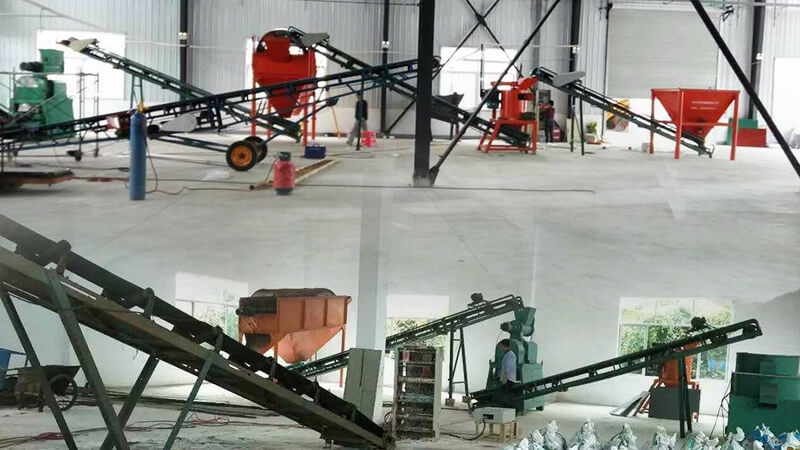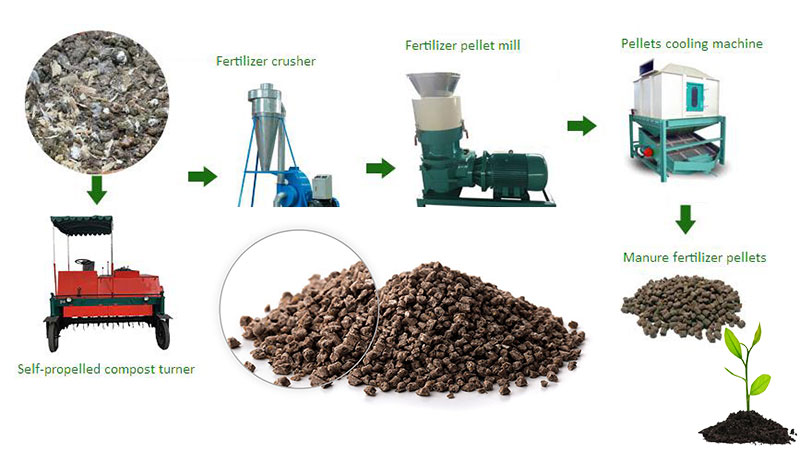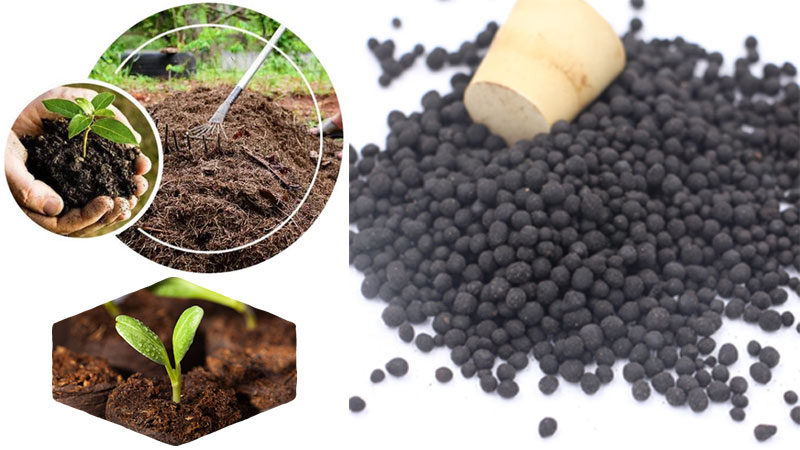In recent years, vegetable growers pay more attention to organic fertilizer. This is partly because organic fertilizer production is more and more advanced and the effect of fertilizer is greatly improved. On the other hand, using organic fertilizer improves soil physical and chemical properties and the absorption and utilization of various types of nutrients. If you insist on using organic fertilizer, it effectively maintains soil condition. In addition, in soil improvement for new greenhouse or multi-year old greenhouse, organic fertilizer has more advantages. What are differences between commercial organic fertilizer and farm manure?
Comparison table
|
Commercial Organic Fertilizer
|
Farm Yard Manure | |
|
About
|
Using organic matters and complete production line produces organic fertilizer pellets or liquid fertilizer.
|
It is made from animal manure and crop straws.
|
|
Raw material resources
|
Animal manure, weathered coal, silkworm excrement, mushroom residue, cassava dregs, municipal sludge, municipal solid waste, etc.
|
Animal manure, composting, plant ash, crop straw, biogas manure, etc.
|
|
Advantages
|
Commercial organic fertilizer contains different kinds of nutrients, which is easy to apply and transport. Improve soil condition and provide nutrients for plants.
|
Farm yard manure can be made easily. Farmers can make homemade organic fertilizer. And the making process is easy.
|
|
Disadvantages
|
Slow release of nutrients, storage in a short time
|
Little organic matter content, large amount of bacteria
|
|
Security
|
Killing harmful organisms without causing harmful effect to plant roots
|
Incomplete decomposition
|
|
Types
|
Biological organic fertilizer, biological compound fertilizer, liquid organic fertilizer, animal based fertilizer, blood meal, bone meal, etc.
|
Chicken manure, pig manure, cow dung, sheep manure, rabbit manure, cake, composting, etc.
|
|
Production
|
Large scale, complete production system
|
Small scale, simple mixing and composting
|
Contents: Commercial Organic Fertilizer vs Farm Yard Manure
| ◎Definition ◎History ◎Production ◎Storage ◎Application ◎Development trend |
|
Definition
Commercial organic fertilizer refers to refined organic fertilizer, organic and inorganic fertilizer. Its raw materials can be animal manure, weathered coal, peat, amino acids, etc. In recent years, waste containing organic matters can be used for organic fertilizer production process, like urban house refuse, industrial scraps, digested effluent, digested sludge, sapropel and peat, etc. Commercial organic fertilizer is easy to transport and use, which is important fertilizer for agriculture.
Farm yard manure mainly makes from animal manure, human excrement, composting and cake manure. Because of wide resources and large storage, it is main organic fertilizer resource in countryside. It contains many organic matters so that it plays an important role in improving soil condition.
History
Commercial organic fertilizer originated in the beginning of last century. In 1925, Albert Howard, the father of modern composting, created a new composting way that is called Indore method. He used leaves, waste and animal manure to make a pile that was about 1.5 meters high. Turn and mix the 
In 1922, Becali obtained a patent in Italy about organic anaerobic fermentation. In 1939,
Dr. Earp-Thomasreduced composting time about one to three months. It improved high-temperature composting. In the 1980s, composting factories appeared subsequently. It became a new approach of organic resource for municipal waste, urban sewage sludge, waste in agriculture, forestry and animal husbandry and animal manure. And then it produced many composting product with fertilizer making machine, like cake, pellets and powder. Now it has developed into biological organic fertilizer.
As for farm yard manure, it has a long history. For the past several centuries, it has been important fertilizer for agriculture production. In rural areas all over the world, farmers used crop straws, leaves, weeds and animal manure to make pile and fertilizer for long times. However, they all made it by hand. It is characterized by high labor intensity, composting for a long time, limited raw materials, which belongs to open-air composting.
Production
Commercial organic fertilizer production has different production technology and process. It can be made into cake, meal, pellets, powder, liquid, etc. Every organic fertilizer product has corresponding method. For example, organic fertilizer granules production is as followings.
Organic raw materials composting(compost windrow turner)→organic matters crushing and mixing(organic fertilizer crusher and mixer) →raw materials granulation(new type organic fertilizer granulator) → organic fertilizer granules drying and cooling(rotary drum dryer and cooler) → organic fertilizer screening(organic fertilizer screener machine) → organic fertilizer granule packing(automatic organic fertilizer packaging machine)
To make farm yard manure, farmers usually use high temperature composting. The purpose of retting is to make organic raw materials fully fermented. It should be composting into pile and covering layer so that it will have high temperature internally. It can kill bacteria and eggs in high temperature. In this way, fertilizer can be well-composed rapidly.
Storage
Because of high absorbent property, commercial organic fertilizer is usually packed in packing bags or packing bottle. As for organic fertilizer granules, it 
For animal manure storage, you can build pens so that it cannot leak water and fertilizer. Farmers should remove manure from an animal yard and add soil regularly. The ratio of soil and manure is 1:3.5. Farmers can add soil every other day so that it has good fertilizer effect and reduces fertilizer nutrient loss. In winter, farm yard manure is suitable for pile in stacks.
Application
Commercial organic fertilizer has more nutrients than farm yard manure, so it has more application. According to different kinds of organic fertilizer products, it has special application and can provide nutrients directionally. In addition, farmers can purchase certain organic fertilizer granular according to different requirements.
Farm yard manure is suitable for small range using, especially popular among smallholders. It can be used for fruit and vegetables cultivation and as base fertilizer for agriculture.
Development Trend
In recent years, with the continuous improvement of people’s living standards, people’s life has changed from simply having adequate food and clothing to high life quality. This is consumption transition from high-calorie food to safe, healthy and green food. People pay more attention to green and organic food. The fertilizer is the basis of green food, only the preparation of green fertilizer to achieve this purpose. Nowadays, bio-fertilizer, active organic fertilizer, biochemical compound fertilizer and other non-polluting green ecological series of fertilizer are the most advanced fertilizer in this area. In developed countries, 70-80% of the chemical fertilizer is produced into a scientific and technological content of compound fertilizer and used as special fertilizer. In the meanwhile, commercial organic fertilizer is moving in the direction towards to biological organic fertilizer and new fertilizers.
Farm yard manure will be a long-time presence. It will add more useful substance while composting, like biological agent and mushroom residue. And farm manure will make advances to intensification and scale.
Related reading:
1.Proposal on Organic Fertilizer Production Line
2. Commercial Organic Fertilizer Composting and Granulation
3. What Are the Benefits of Organic Fertilizer?
4. How to Make Organic Fertilizer at Home?
